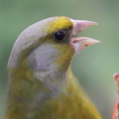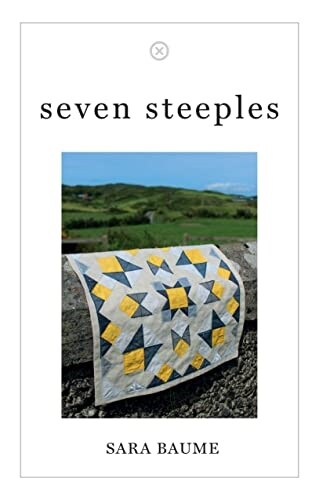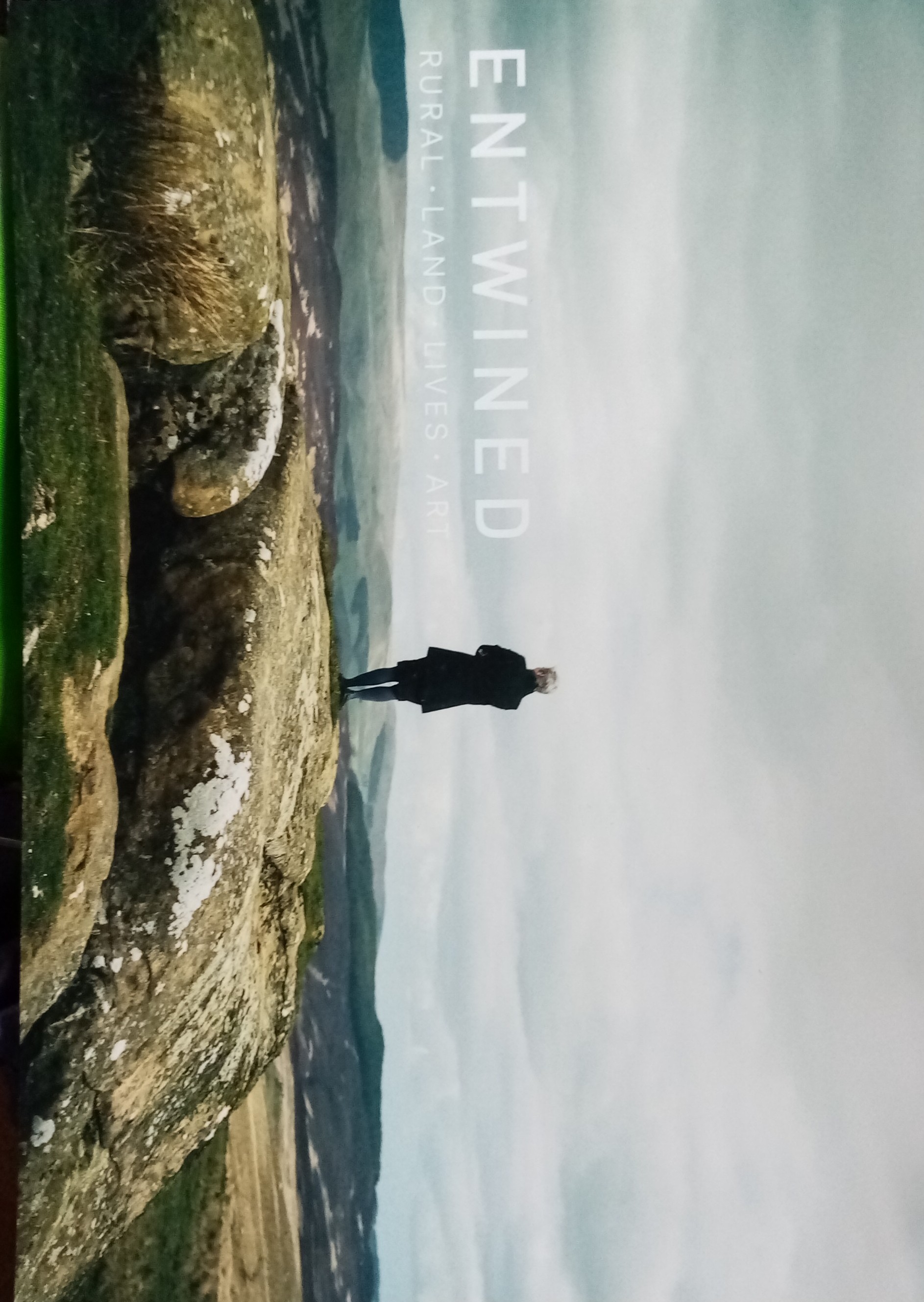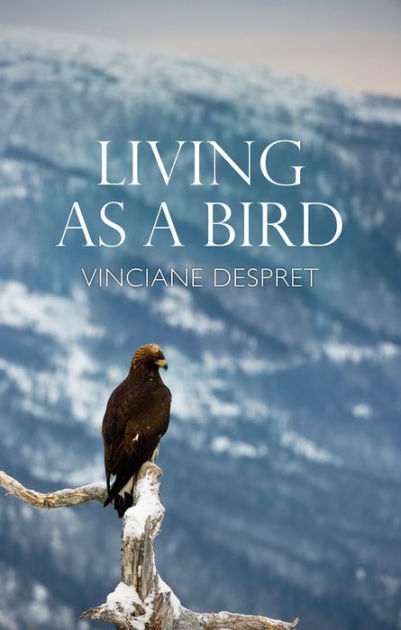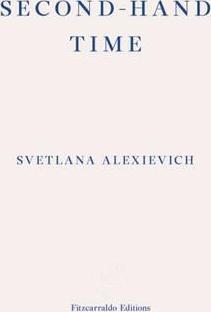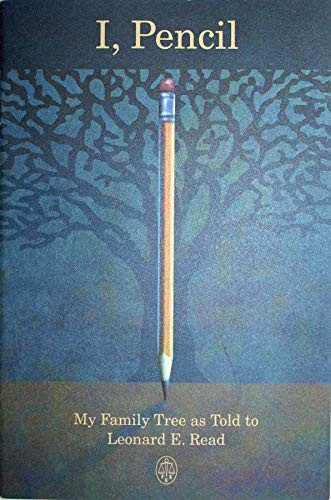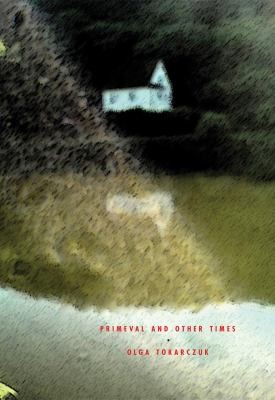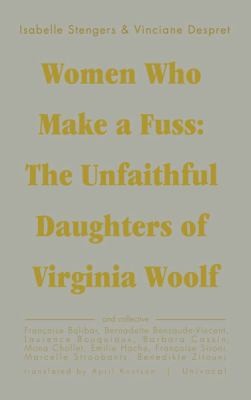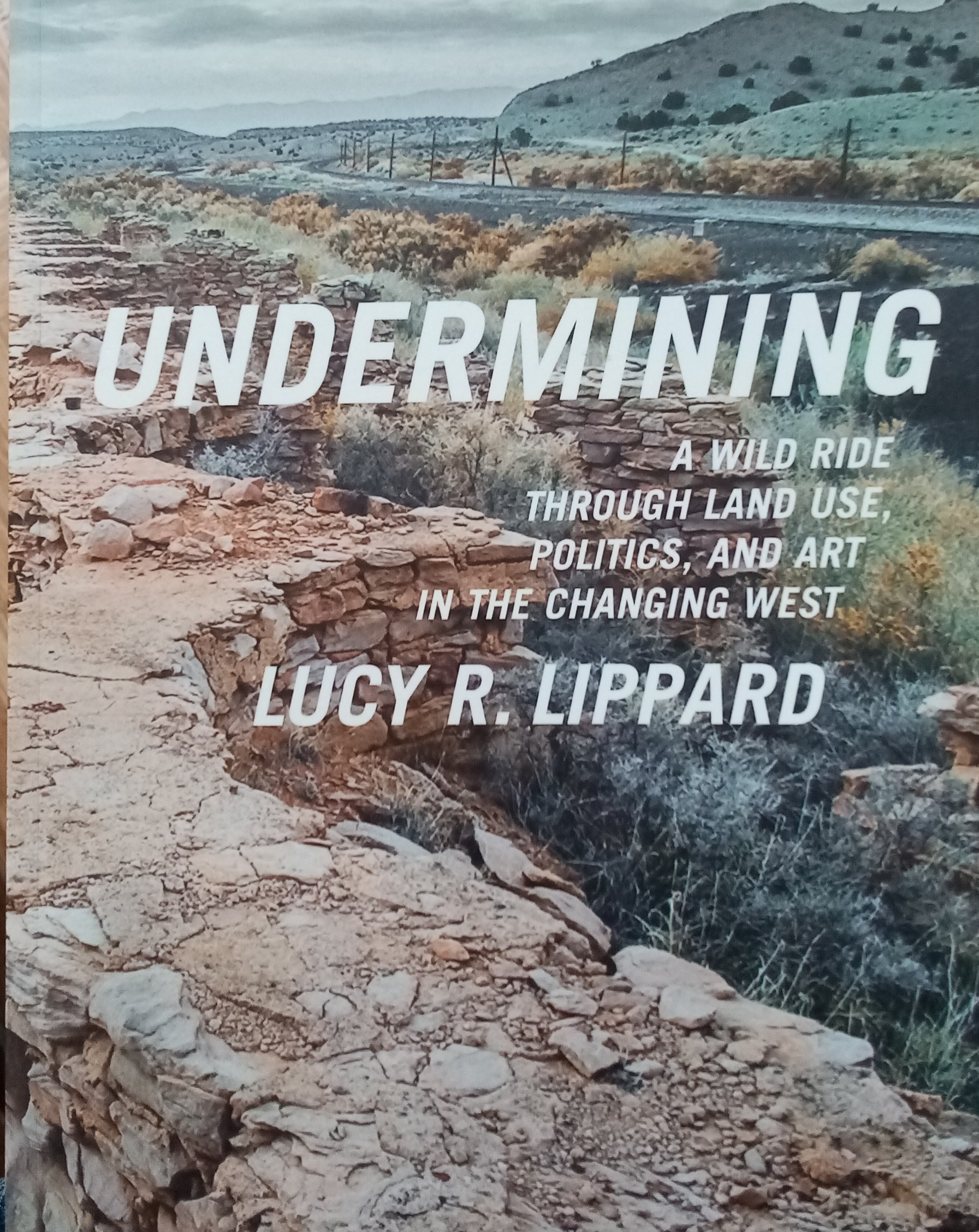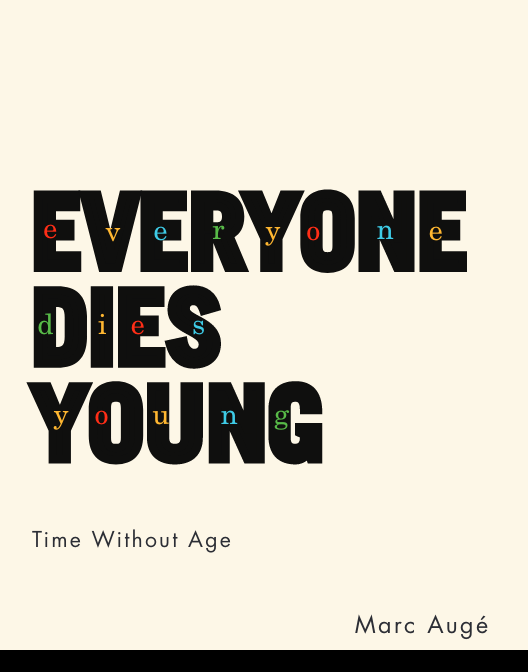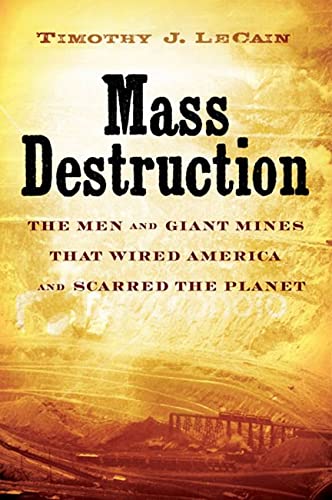I was an artist on this project. Just starting to read my copy of the book. There ar over 30 authors and artists (including me) and I really like many of their works.
Reviews and Comments
I arrange things into artworks, including paint, wood, plastic, raspberry pi, people, words, dialogues, arduino, sensors, web tech, light and code.
I use words other people have written to help guide these projects, so I read as often as I can. Most of what I read is literature (fiction) or nonfiction on philosophy, art theory, ethics and technology.
Also on Mastodon.
This link opens in a pop-up window
Fionnáin reviewed Living As a Bird
Singing a territory
5 stars
This book is sublime. Vinciane Despret solidifies her place as my favourite contemporary philosopher.
Living as a Bird is polyphonic, with chapters critiquing research on birds and territory written alongside "Counterpoints" that reflect on and expand the ideas that underpin the chapters. Despret tells of past researchers who recognised things that seem obvious but are often forgotten in modern knowledge: that territories are dynamic and living, that they are not only based around resource but also sociality, and that they are shared.
But ultimately, the words, how they are chosen, and the stories they tell, are only part of the story. The real joy of this book is in how it sings, dances and swerves, part blackbird, part robin and part skylark, creating a feeling as much as an argument. And that needs to be read.
Fionnáin reviewed Second-Hand Time by Svetlana Aleksievich
Reading between the lines
5 stars
Svetlana Alexievich is a curator of stories. She is neither strictly an oral historian nor a writer, but somehow straddles both of these worlds. In this fashion, Second-Hand Time is a remarkable catalogue of tales, parables and musings by people from the former Soviet Union, all documented from interviews between 1991 and 2012.
The result is a portrait of a population. Somehow in the multitude of voices that include everything from young to old, from wealthy gentry to starving immigrant, from the islands, Georgia, Belarus, Ukraine, Siberia there is an honest reflection of a complex people. In our current climate, this book also served as a timely warning (unheeded).
Fionnáin wants to read I, Pencil - My Family Tree As Told to Leonard E. Read by Leonard E. Read
Fionnáin wants to read The Kurdish Wheatear by Jean Rolin

The Kurdish Wheatear (French language)
Mentioned in Vinciane Despret's Living as a Bird p57: "that would mean neglecting the fact that, in the case of birds, some amateur practices have entailed undeniable violence – read Jean Rolin's magnificent novel Le Traquet Kurde [The Kurdish Wheatear] for an idea of what being a 'bird lover' can also entail."
Fionnáin started reading Thin Places by Kerri ni Dochartaigh
Fionnáin reviewed Primeval And Other Times by Olga Tokarczuk
Time and the world
5 stars
Olga Tokarczuk is a masterful storyteller, and this book is a wonder. It is told in short chapters, each one following one of the occupants of the fictional village of Primeval in Poland. It takes place over the course of the 20th Century, following three generations.
Within the short chapters are touching, striking, considerate and heartfelt moments, each one revealing a depth of humanity that Tokarczuk seems to find with ease. But this ease is deceptive: there is not a word out of place here, and the characters have both allegory and humanity in them. Underpinning the linked stories is an ongoing debate about existence, god, and the lives of animals, fungi and inanimate things. It is so prescient, and so relevant today, that it is surprising that this book was first published in 1996. A brilliant piece of craft, and a beautiful story of life's struggles and moments of …
Olga Tokarczuk is a masterful storyteller, and this book is a wonder. It is told in short chapters, each one following one of the occupants of the fictional village of Primeval in Poland. It takes place over the course of the 20th Century, following three generations.
Within the short chapters are touching, striking, considerate and heartfelt moments, each one revealing a depth of humanity that Tokarczuk seems to find with ease. But this ease is deceptive: there is not a word out of place here, and the characters have both allegory and humanity in them. Underpinning the linked stories is an ongoing debate about existence, god, and the lives of animals, fungi and inanimate things. It is so prescient, and so relevant today, that it is surprising that this book was first published in 1996. A brilliant piece of craft, and a beautiful story of life's struggles and moments of wonder.
think we must
4 stars
Two prominent voices in contemporary philosophy put a letter, and an idea, to a collection of academics about how being a woman has affected their being in university. Inspired by Virginia Woolf's refusal to sign a statement supporting the Allied response in World War II, this contemporary letter is not a call to (or against) action, but more a searching for diversity of thought.
It is successful too. The second half of the book documents the responses, so varied and considered that they make fascinating reading. This is where the book really enthralls. The authors allow the responses their own space, and many of the academics eloquently pick apart the flaws in a male-dominated space, while some refuse to and choose critique and analysis that positions them within this system. As a fan of both Despret's and Stengers' other work, it was nice to see how both voices came through …
Two prominent voices in contemporary philosophy put a letter, and an idea, to a collection of academics about how being a woman has affected their being in university. Inspired by Virginia Woolf's refusal to sign a statement supporting the Allied response in World War II, this contemporary letter is not a call to (or against) action, but more a searching for diversity of thought.
It is successful too. The second half of the book documents the responses, so varied and considered that they make fascinating reading. This is where the book really enthralls. The authors allow the responses their own space, and many of the academics eloquently pick apart the flaws in a male-dominated space, while some refuse to and choose critique and analysis that positions them within this system. As a fan of both Despret's and Stengers' other work, it was nice to see how both voices came through here (although Stengers' felt the stronger of the two). The epilogue clearly says that no definitive conclusion is reached, and that is true, but in this case the journey seems to be the important point, and in that journey are many varied perspectives well presented.
Fionnáin reviewed Undermining by Lucy R. Lippard
Digging into land, activism and art
3 stars
Lucy Lippard is a well-known voice in the area of land and site-specific art. Undermining repositions this voice to land activism situated particularly in the American west, where she has repositioned herself. Using a mixture of photography and writing, it tells a story of gravel, adobe, uranium, fracking and water, considering what happens in the subterranean realm.
Lippard presents strong (and worrying) points about land use and land law, but never really finalises her points. She makes a couple of howlers, spending a long time discussing Western land artists and then paying lip service to native art (which seems more important in this context), or suggesting "truth" in pre-Photoshop photography. The book is also very American-centric, and despite her statement that the local represents the global, her arguments do not hold from a global perspective if you are familiar with art or activism outside of the USA. Despite these issues, …
Lucy Lippard is a well-known voice in the area of land and site-specific art. Undermining repositions this voice to land activism situated particularly in the American west, where she has repositioned herself. Using a mixture of photography and writing, it tells a story of gravel, adobe, uranium, fracking and water, considering what happens in the subterranean realm.
Lippard presents strong (and worrying) points about land use and land law, but never really finalises her points. She makes a couple of howlers, spending a long time discussing Western land artists and then paying lip service to native art (which seems more important in this context), or suggesting "truth" in pre-Photoshop photography. The book is also very American-centric, and despite her statement that the local represents the global, her arguments do not hold from a global perspective if you are familiar with art or activism outside of the USA. Despite these issues, there are wonderful poetic moments that contrast erection of buildings with digging holes, and the writing benefits from Lippard's ironic sense of humour and well-judged framing from one section to the next, and in the end is an interesting if flawed exploration of the undermined world.
Fionnáin reviewed Everyone Dies Young by Marc Augé
The myth of age
3 stars
A playful and enjoyable memoir by an anthropologist who turns his observational lens on himself. This book is short but thoughtful, presenting the argument that age is a social construct, and not really existent. Opening with a critique on ageism that is well weighted, the book moves on to consider how people create a perception of what oldness is. Much of the book considers the role of story in film and novel as well as in personal reflections on age and youth. In the end, the book is a little short and would have been nice to see Augé dig a little deeper into some of his points, particularly the idea of the idealisation of youth when remembering; these points about nostalgia and personal narrative are interesting to consider, particularly in a time when Augé himself attests that perhaps it will be hard for people today to experience a similar …
A playful and enjoyable memoir by an anthropologist who turns his observational lens on himself. This book is short but thoughtful, presenting the argument that age is a social construct, and not really existent. Opening with a critique on ageism that is well weighted, the book moves on to consider how people create a perception of what oldness is. Much of the book considers the role of story in film and novel as well as in personal reflections on age and youth. In the end, the book is a little short and would have been nice to see Augé dig a little deeper into some of his points, particularly the idea of the idealisation of youth when remembering; these points about nostalgia and personal narrative are interesting to consider, particularly in a time when Augé himself attests that perhaps it will be hard for people today to experience a similar nostalgia for their youth.
Fionnáin started reading Everyone Dies Young by Marc Augé
Fionnáin wants to read Mass destruction by Timothy J. LeCain
Fionnáin started reading Undermining by Lucy R. Lippard
Fionnáin wants to read Research is ceremony by Shawn Wilson
Referenced in Pollution is Colonialism
